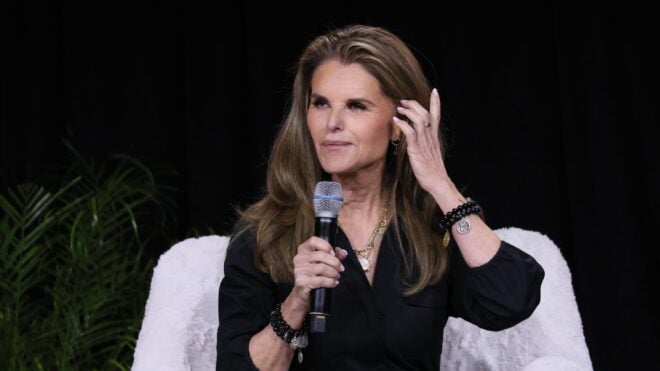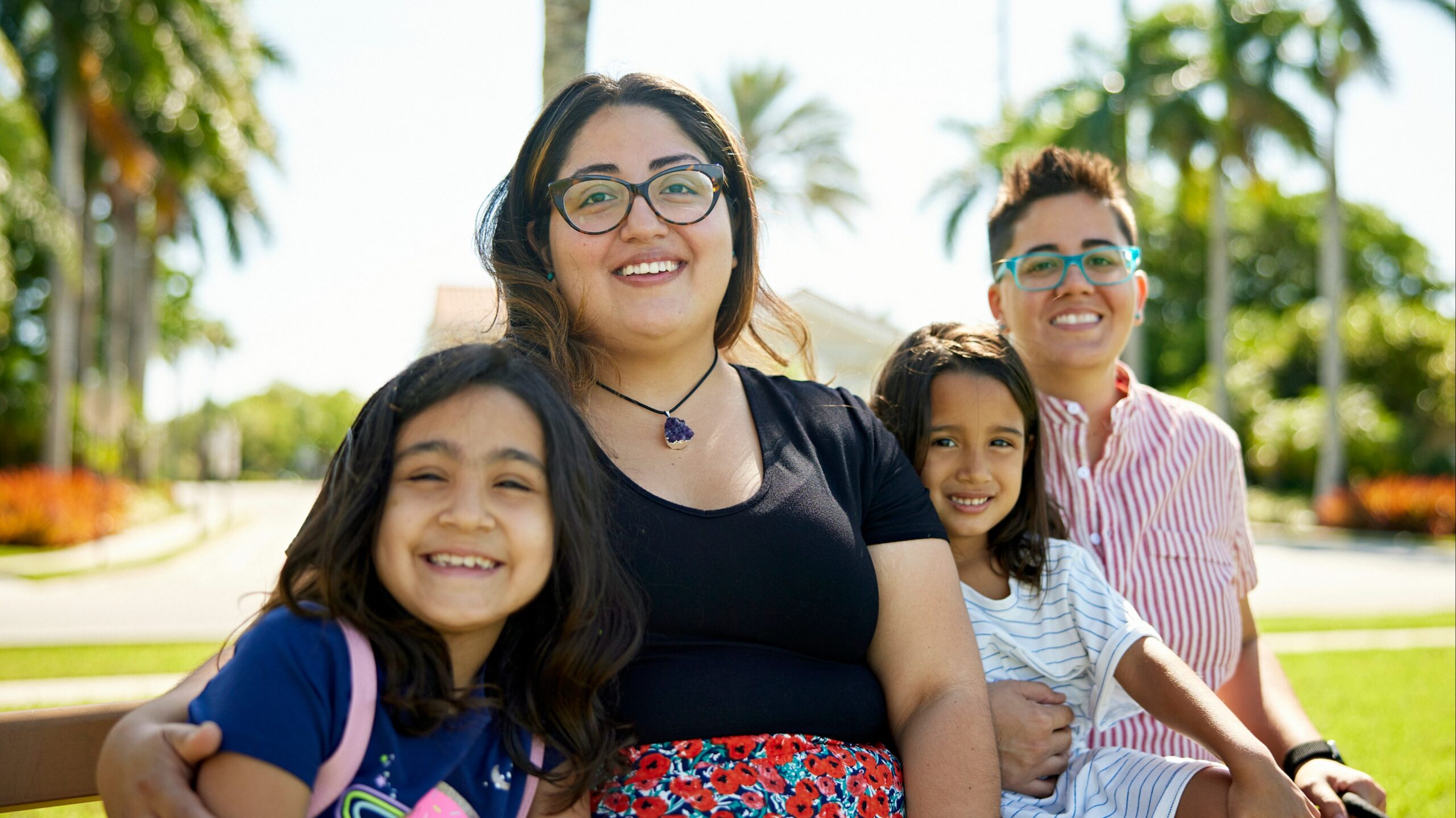
Motherhood means something different to everyone, both mothers and nonmothers. To some, motherhood is a blessing, their reason for living, a privilege. To others, it’s exhausting, time-consuming, but worth it. But no matter where you fall on the motherhood scale, no one has the right to tell you how you should feel. So long as you’re treating your children with love and respect, there’s no one way to be a parent.
This goes double for trans mothers, who are constantly told they aren’t good enough to be parents. Traditionalists and bigots fly into a rage when they don't see a nuclear family: a cisgender man as the breadwinner, a cisgender woman as the primary caregiver, and a smattering of children dressed in binary-appropriate pinks and blues. To some people, seeing a transwoman breastfeed her baby is against nature (guess again), and seeing words like demiwoman and nonbinary associated with motherhood sends them into confused hysterics.
But enough about the haters, I spoke to three queer parents who identify with the term ‘mother,’ to get their insights into what motherhood means to them.
The views expressed in this personal essay are solely the author's, and while we celebrate individuals’ rights to express themselves, these views do not necessarily reflect the opinions and beliefs of this website or its affiliates.
Demimoms Unite
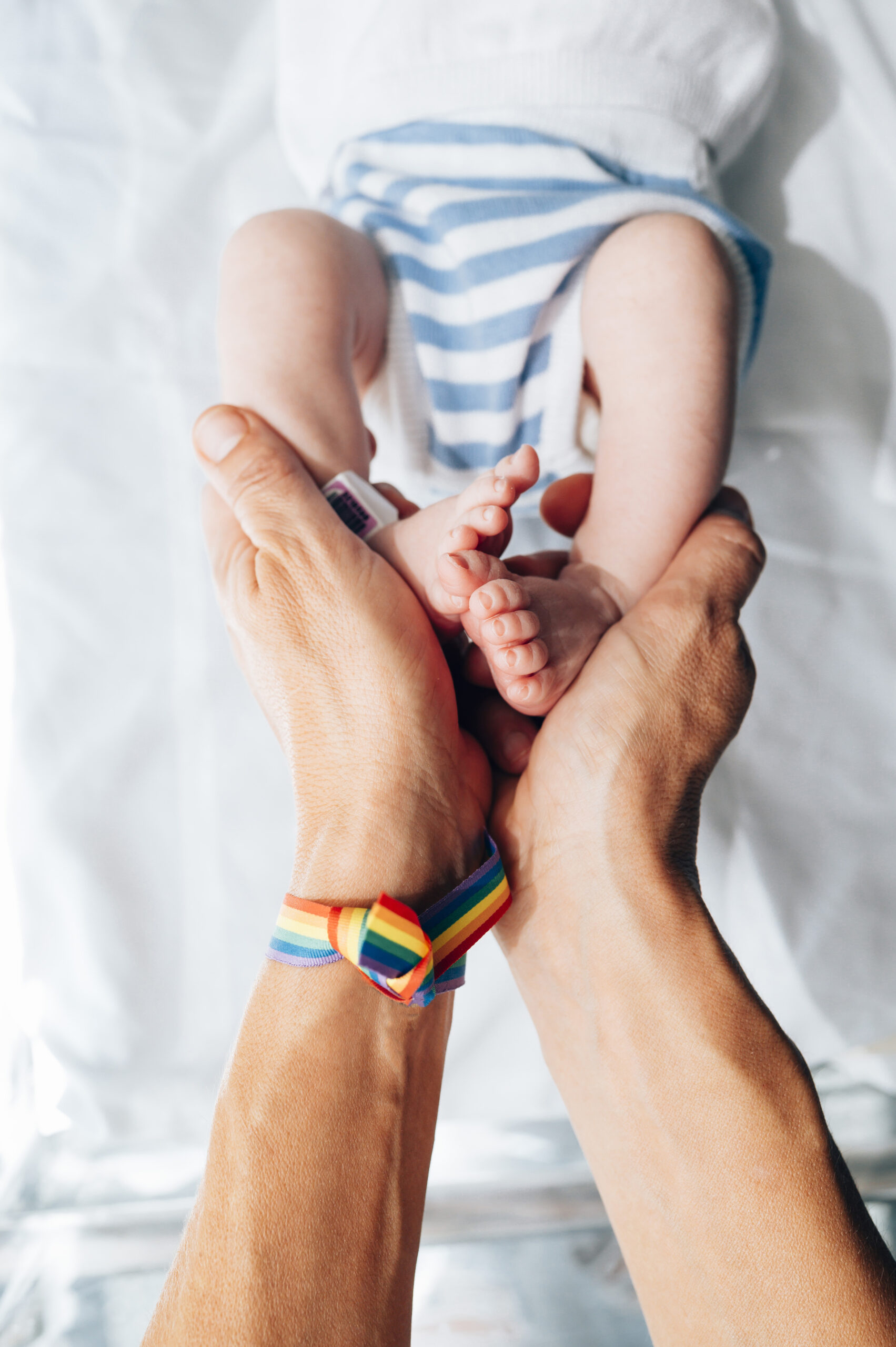
I chatted with Sani S., a 36-year-old accountant with a newborn and a daughter. "I gave birth to my son back in April," Sani stated, "and my husband moved in with me with his daughter four years ago when she was 2."
I asked Sani how they defined motherhood. "As a demiwoman, I still relate to the word mother as my motherhood and gender don't particularly intertwine that much in my mind," Sani said. Going back to the idea of breaking gender norms and the nuclear family, there's nothing lost when a parent denies the gender binary. A child doesn't care, they only care about being loved. "I mother my children as many mothers do, I breastfed my boy, I made a home for them, there are only certain moments within my gender fluidity that I consider anything femme about myself. But that doesn't stop me from being mamma bear."
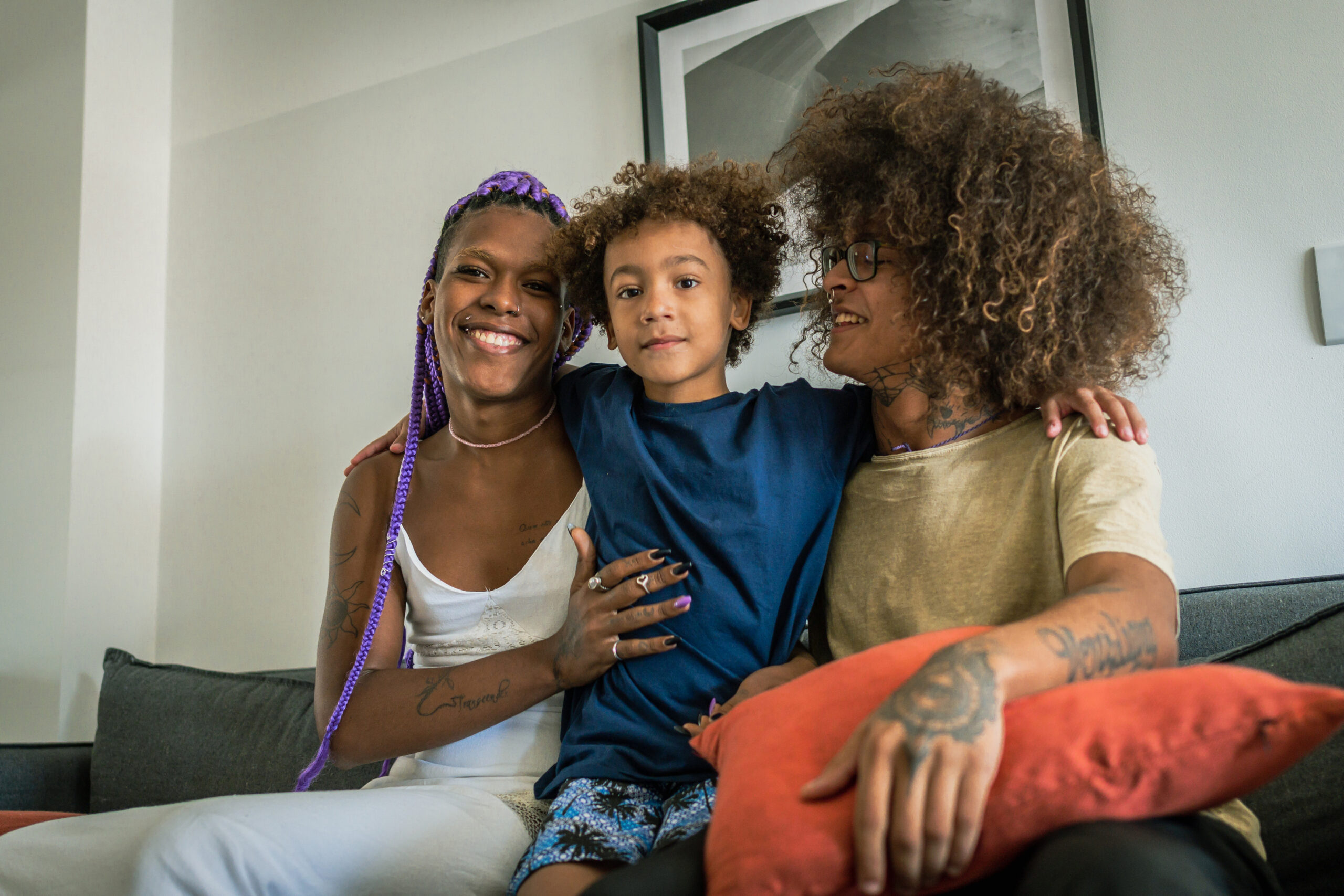
With this in mind, motherhood is a state of being, rather than a label for a female parent. Though it can absolutely be extremely gender-affirming to transwomen who have kids, we can’t forget about nonbinary parents who feel like they belong in the same community.
"Though we do call our kids he and she,” Sani concluded, “as a whole we try to not stick to too many gender roles. I can't wait to see what kind of people they become in the future, and how they treat people like me."
Trans Joy
Going back to the concept of gender-affirmation, I spoke to someone who feels motherhood is a part of her soul. Alicia, a 46-year-old caterer, told me about her stance on motherhood. "I see motherhood as the very simple concept of caring," she began. "I'm a transwoman who cares for two children, and it doesn't matter to me or them how they biologically came to be."
The biggest argument transphobes (specifically trans exclusionary ‘feminists’) have against transwomen, is that they can’t give birth. This is why it’s dangerous to conflate motherhood and femininity with the reproductive system, trivializing what makes a woman down to their ability to procreate. This harms both trans and cis women, seeing transwomen as charlatans, and ciswomen as baby machines. By their logic, ciswomen who have gone through menopause or were infertile from birth aren’t "real women." Motherhood is about taking care of a child, regardless of how that child was born.
“I have had friends, in the past of course, who have indirectly shamed me for not being biologically enough to be a mother. Yet they wouldn't say that to a cis-lesbian couple, so why say it to me? OK then they may just wax on about not having a male father figure, but still. I'm no less of a mother than my partner, or anyone else. I changed the diapers, I bathe them, I talk them through their worries, teach them how to bake and change a light bulb. I’m mom, that’s it.”
Though discrimination is a large part of any marginalized person’s life, queerness also has its huge share of joy. Both in terms of teaching children about queerness, and just being who you are with a child who only cares about happiness.
"Knowing that I can shape someone's happiness, or at least influence it, is my favorite thing about motherhood,” Alicia concluded. “I was lucky enough to come from a supportive and sweet family while growing up, but I know many others, queer and cis, who grew up with very judgmental and controlling parents. I just hope I can show my children that the world can be a kind and amazing place if they choose to pass on the message my parents passed down to me. Hopefully, if enough parents do this, transgender won’t be such a bad word to society."
Gender Neutrality ≠ Confused Children
Even within the LGBTQIAP+ community, there is some confusion about calling yourself a mother if you don’t actually identify as a woman. To this I say, gender is complicated, and the gender spectrum is called a spectrum for a reason; not every aspect of life can be sorted into exact columns. In keeping with the idea that motherhood doesn’t always equal female-parent, I spoke with Nev, a stay-at-home mom who is also a freelance writer.
“My name is Nev, and I'm nonbinary,” they began. “My pronouns are they/them, and I'm a single parent. My kid, Alex, is my world. I've decided to raise them gender-neutral until they can speak for themself, which contrary to public belief is barely different from raising a boy or girl. They have a blue blankie, and a pink pair of shoes, but colors don't define either of us.”
Raising a child as gender-neutral as you are, will generally mean that as they age they will avoid damaging stereotypes for themselves and their peers. Children who grow up with strict gender roles attached to them either become the stereotype or enforce it. Such as the little girl who believes she has to be seen and not heard, to sit pretty, and make sure the men of the family have their snacks. The little boy may believe he’s not allowed to show emotion, that he can’t enjoy certain toys without being chastised for it, and he may believe picking on girls in the schoolyard is a good way to show affection.
Though there’s nothing inherently wrong with being a girly girl, or a masculine guy, society believing this is the default just leads to stigma. And this isn’t just with how you raise your child, but how you identify around them. If your kids see you rejecting gender roles, they’re more likely to do it themselves.
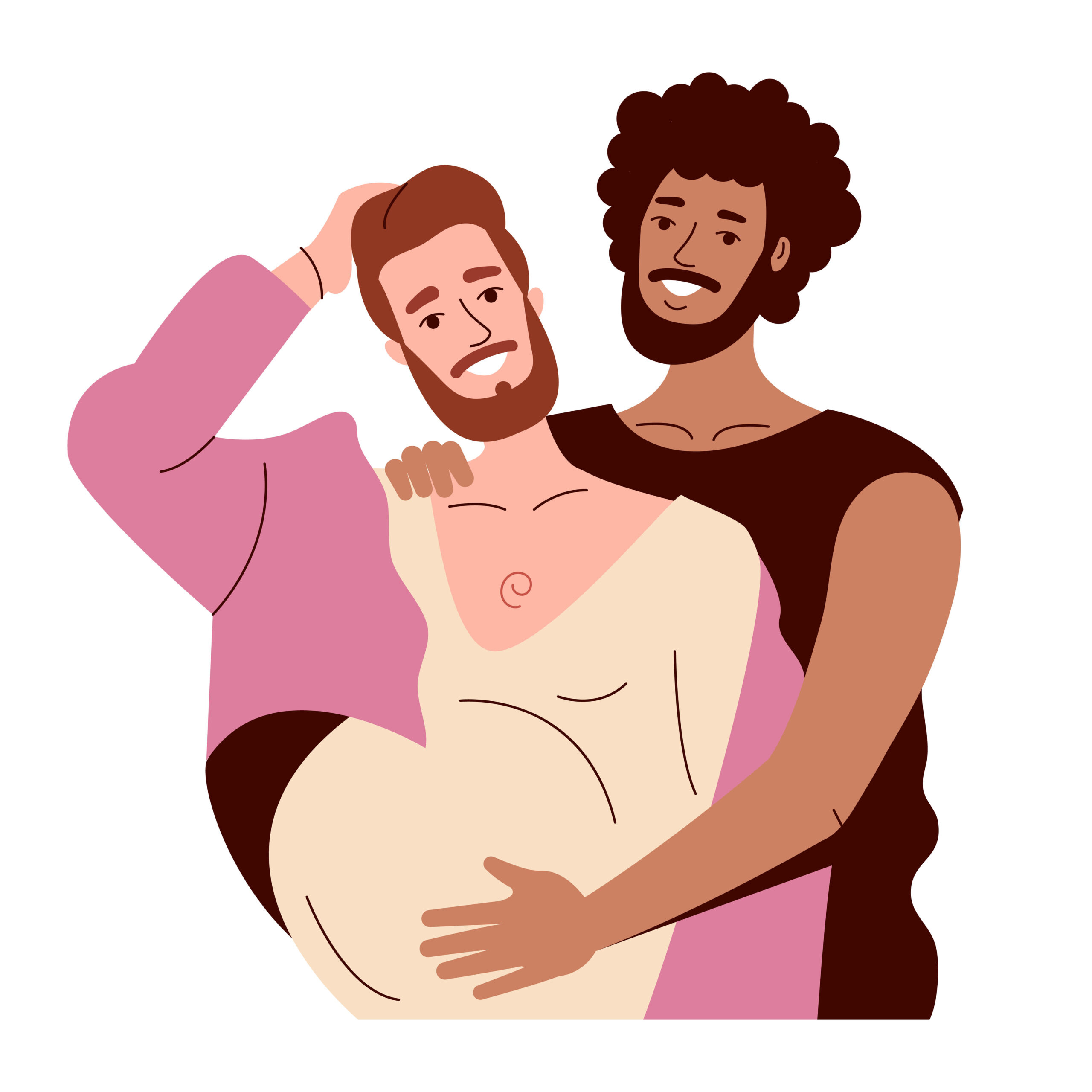
“People think that raising a baby with gender neutrality will scar them somehow, as if they'll get into high school having no idea who they are. But children know, they figure it out eventually, just like I did. The difference being I won't force my kid to wear a dress if they don't want to. Gender expression is great, but it can often be very surface-level, and it's not an indicator of who you are, or — as TERFs love to assume — what 'bits' you have.”
Nonbinary is such a wide term — it can mean neither male nor female, it can mean a gender in-between, being agender, both genders at once, it can be a descriptor for having not picked yourself a gender, the possibilities are pretty endless. Just like being a parent, there’s no one way to be nonbinary. There are tons of nonbinary folks who use gendered pronouns, for many different reasons, so it shouldn’t be any different when they choose to use a gendered word for being a parent. It’s personal preference, and once again, it’s all about caring for a child.
“Motherhood or fatherhood, I kind of switch between which phrase I prefer — is just your title as a parent,” Nev concluded. “It's a wonderful thing to raise a nipper, but I feel like people put it on a pedestal, and that can give the kid a complex when they're older. I don't want my kid growing up to feel like they owe me anything, when all I ever owed them was a roof other their head and a loving ear to lend them. I'm a mother, because I love my baby, that's it.”
Motherhood isn’t gender identity, even though it can involve gender expression. Motherhood is simply love.

